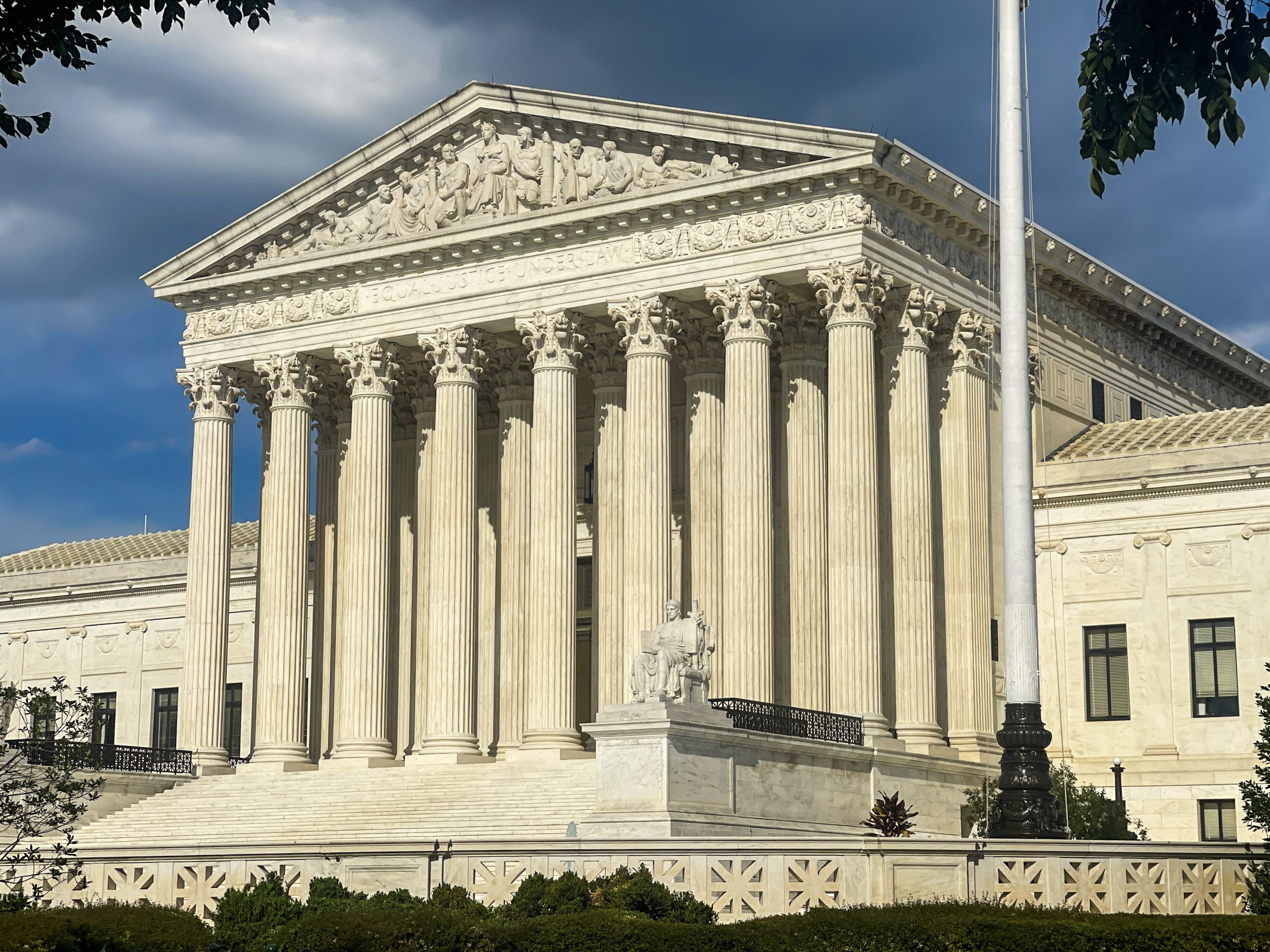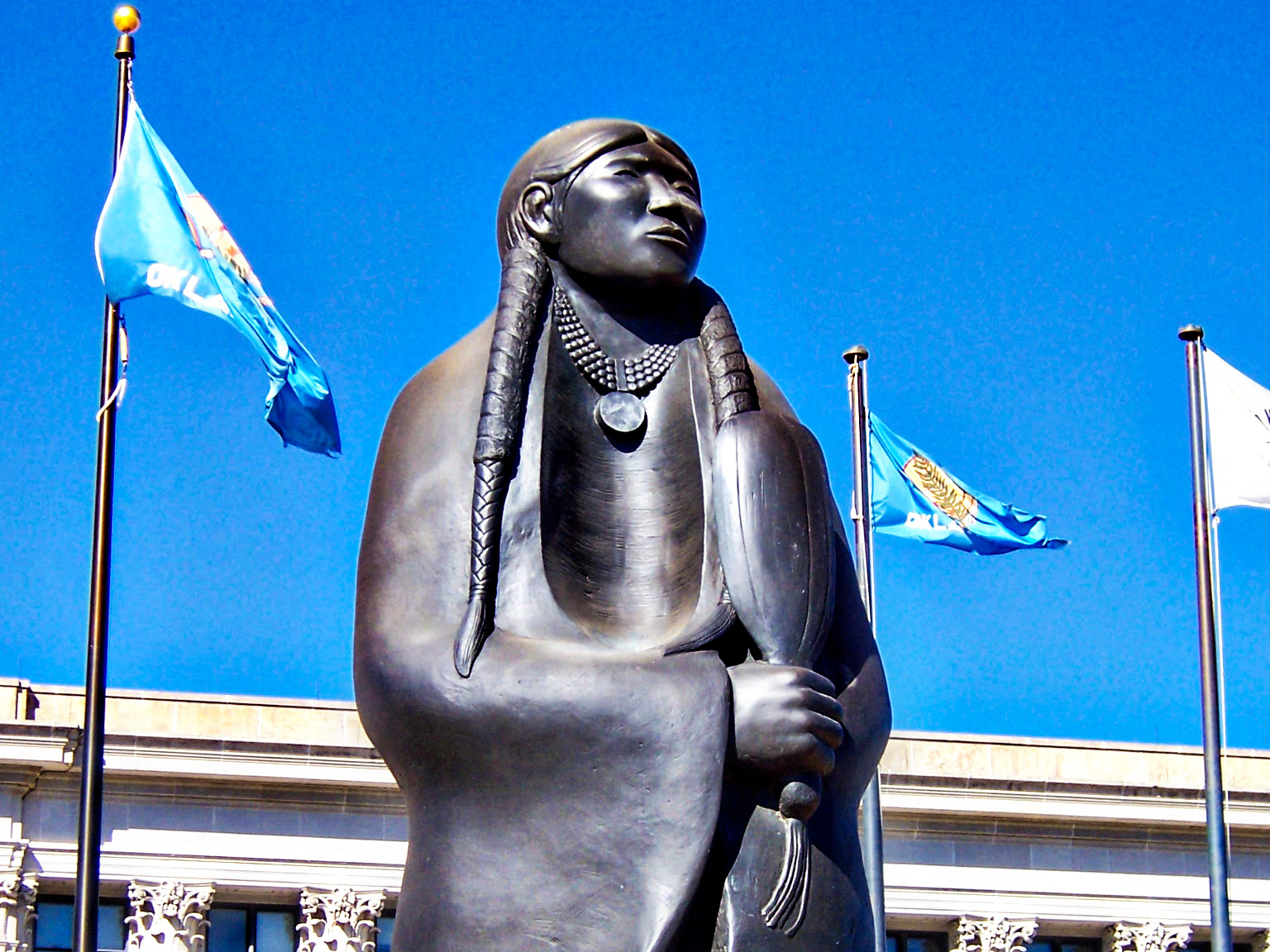Indianz.Com > News > Albert Bender: Anti-Indian sovereignty from the nation’s highest court

Supreme Court anti-Native decision sets stage for Tribal-State conflict
Thursday, September 8, 2022
People's World
“States have no criminal jurisdiction in Indian Country over crimes by Indians against anyone or crimes by non-Indians against Indians. Crimes by Indians are punishable either by the tribe or the federal government, and crimes by non-Indians against Indians are punishable exclusively by the federal government.” Williams v. United States (1946)
The above passage is from the much-esteemed book, American Indian Law, by William C. Canby Jr., Senior Judge of the U.S. Court of Appeals for the Ninth Circuit. Canby was a former Director of the Office of Indian Law of the Arizona State College of Law and a foremost authority on Federal Indian law. The ruling cited by Judge Canby is quite clear— and on point—in reference to states and criminal jurisdiction regarding crimes committed by non-Indians against Indians in Indian Country.
On June 29 of this year, the Supreme Court issued a decision striking an unprecedented body blow against the Tribal sovereignty of Indigenous nations. The retrograde Court ruled in the case of Oklahoma v. Castro-Huerta, that states have concurrent jurisdiction with the federal government in crimes of non-Indians against Indians on Tribal lands.
The Court stated in its inflammatory decision that Indian Country is part of state territory. This is incredibly shocking and betrays an apparent complete ignorance of Federal Indian law.As an attorney whose specialty is federal Indian law, and having practiced on a number of reservations, I shall review the recent Supreme Court decision from the standpoint of its most basic egregious errors, while also scrutinizing the ruling from the perspective of the scathing dissent issued by Supreme Court Justice—and Indian law authority—Neil Gorsuch. The general foundational rule is that state jurisdiction is limited to those crimes that do not concern Indians or Indian interests. Hence, state jurisdiction is limited to crimes committed by non-Indians against non-Indians in Indian Country. Otherwise, the state has no authority on Tribal lands absent Congressional authorization. This is clear and unambiguous. But it must also be kept in mind that Federal Indian law is filled with ambiguities, uncertainties, inconsistencies, and nuances, more so than any other body of law in the entire United States. However, this discourse addresses the more salient errors and lack of knowledge, history, and law embodied in the Court’s latest excursion into Indigenous jurisprudence.

Supreme Court decision foreshadows Tribal-State conflict
The decision written by Justice Kavanaugh, who has no Indian law background, is an engagement into the most labyrinthine twists and turns of Byzantine sophistry in a sordid, awkward attempt to pull the proverbial “rabbit out of the hat.” It is a clear violation of long established Federal Indian law.
The granting of states the right to intrude on Native lands in this respect has no basis in case law, or in the enshrined tenets of statutes and case law, beginning with the Indian Trade and Intercourse Act of 1790, to the much heralded decision of Worcester v. Georgia issued by the John Marshall Court in 1832. This set the standard of a nation-to-nation relationship between the Tribal nations and the United States. The Marshall Court stated that the “treaties and laws of the United States contemplate the Indian territory as completely separated from that of the states.”
The ruling rendered in Oklahoma v. Castro-Huerta purports to give the states a foothold in Indian Country. The legal reasoning asserted in this decision is stunningly faulty; indeed, one has to strain to try to make sense of it, and still to no avail.
I shall begin with an issue that is a supporting core of Kavanaugh’s ruling that is curiously not directly addressed by Justice Gorsuch. Justice Kavanaugh asserts as one of the foundations of his errant opinion, that Indian Country is part of and not separate from state territory. That would be equivalent to saying that New York is part of Pennsylvania, or Ohio is part of Indiana. Both are, of course, separate political entities. A state is defined as a territory with its own government and borders within a larger country.
Justice Kavanaugh’s assertion that a reservation is part of state territory lowers Tribal land to a subordinate status and takes away the nation-to-nation status vis-à-vis the federal government proclaimed in Worcester. Federal Indian law has held for over 200 years that reservations are separate from the states. This is founded on treaties, statutes, and case law that the Tribes are sovereign nations with only Congressional limitations.In reference to the Worcester decision, that states have no jurisdiction in Indian Country, Kavanaugh’s retort is that at the time of the ruling territorial separation was the reason that state authority did not extend to Tribal lands. He advances that in the early 1800s Indian Country was separate from the states, therefore state law did not apply. Kavanaugh has no idea of what he is talking about, as he has no knowledge or grasp of history. Georgia was already a state in the Worcester case of 1832 and had been for decades. There was no territorial separation between it and the Cherokee Nation. The Cherokee Nation was geographically within the boundaries of the states of Georgia, Tennessee, North Carolina, and Alabama. Since there was no territory separating those states from the Cherokee Nation, such an argument is absurd. There was a national boundary between those states and the Cherokee Nation based upon treaties with the federal government of the United States. Keep in mind that Kavanaugh, throughout his bumbling opinion, never explains what he means by “territorial separation.” We are left to draw our own reasonable, logical conclusion.
The Justice also delves into Oklahoma Indian history. He cites the famous groundbreaking volume by famed Oklahoma historian, Angie Debo, entitled And Still the Waters Run: The Betrayal of the Five Civilized Tribes, to illustrate that state officials and state courts defrauded the exiled Tribes of land and resources guaranteed by federal treaties. Gorsuch also cites the “deadliest of enemies” description from United States v. Kagama (1886) to further indicate traditional state enmity toward Tribal nations.The dissent notes that “in the decades following statehood, many settlers engaged in schemes to seize Indian lands and mineral rights by subterfuge.” Gorsuch explains that these schemes resulted in the bulk of the landed wealth of the Indians ending up in the hands of the new settlers, and that state officials and courts “were sometimes complicit in the process.” I would add that this happened more than “sometimes” considering that the vast amount of Oklahoma Indian land was taken in stolen allotments. For Kavanaugh to continue claiming that Indian Country is part of the state is inflammatory and provocative language that will foster further conflict and confrontation in Tribal-State relations. Some tribal communities are already pondering whether the decision means that state police will enter reservations patrolling and policing for non-Indian law violators. Will the ruling foster state jurisdictional intrusions into Indian land and interests? Will the Court’s decision “that Indian Country is part of a state and not separate from it” be tested by an overzealous state to further this intrusion into Indigenous sovereignty?
Supreme Court decision is part of a conservative political agenda
The Supreme Court ruling has less to do with law, than with the conservative majority’s pursuit of an energized right-wing political agenda. Its anti-Indian sovereignty ruling will join a conservative cavalcade of other regressive decisions seen previously with abortion rights, the Environment Protection Agency’s (EPA) authority to control carbon emissions, the separation between church and state, and restricting Miranda rights.
The potential ramifications are huge and far-reaching. It shall remain, for the time being, a decision issued in infamy and best described by Gorsuch as “an embarrassing new entry into the anticanon of Indian law.” Tribal nations must be prepared to combat this judicial onslaught—and any more to come—from this Court’s conservative anti-Native agenda.
As with all op-eds published by People’s World, this article reflects the opinions of its author.
U.S. Supreme Court Decision in Oklahoma v. Castro-Huerta
Syllabus |
Opinion [Kavanaugh] |
Dissent [Gorsuch] |
Complete Document
U.S. Supreme Court Documents in Oklahoma v. Castro-Huerta
Questions Presented |
Docket Sheet: No. 21-429 |
Oral Argument Transcript |
Day Call
Albert Bender is a Cherokee activist, historian, political columnist, and freelance reporter for Native and Non-Native publications. He is currently writing a legal treatise on Native American sovereignty and working on a book on the war crimes committed by the U.S. against the Maya people in the Guatemalan civil war He is a consulting attorney on Indigenous sovereignty, land restoration, and Indian Child Welfare Act (ICWA) issues and a former staff attorney with Legal Services of Eastern Oklahoma (LSEO) in Muskogee, Oklahoma.
This article originally appeared on People's World. It is published under a Creative Commons license.
Related Stories
Supreme Court nominee advances with show of support for tribal sovereignty (April 5, 2022)Supreme Court hears cases with high stakes for Indian Country (February 21, 2022)
Gaylord News: Supreme Court takes another look at Indian Country dispute (January 31, 2022)
Chuck Hoskin: Cherokee Nation deserves to be treated with respect (January 31, 2022)
Supreme Court surprises by taking up contentious Indian law case (January 21, 2022)
Search
Filed Under
Tags
More Headlines
Native Hawaiian performer Kalani Peʻa wins fourth Grammy for album dedicated to matriarchs
Department of Defense cancels National Native American Heritage Month
Chuck Hoskin: Cherokee Nation signs first disaster management agreement in Indian Country
DVIDS: Umatilla Tribes sign fish passage agreement
Native America Calling: Balancing economic safety and development for payday loan businesses on tribal land
‘Nothing’s changed. Nothing’s gotten better’: President Trump’s nominee takes on Indian health
Native America Calling: A Mohawk chef on TV and a Native foods cookbook
Cronkite News: Arizona governor promises $7 million for NAGPRA work
Indian Country still on high alert over President Trump’s freeze on federal funding
Native America Calling: Federal funds under fire from President Donald Trump
Native America Calling: Native youth building the foundation for future leadership
‘A step in the wrong direction’: President Trump’s funding freeze shakes up Indian Country
Native America Calling: From road access to ICE immigration raids, tribes are asserting sovereignty
President Trump’s ‘love’ for Lumbee Tribe only goes so far in fight for federal recognition
NAFOA: 5 Things You Need to Know this Week (January 27, 2025)
More Headlines
Department of Defense cancels National Native American Heritage Month
Chuck Hoskin: Cherokee Nation signs first disaster management agreement in Indian Country
DVIDS: Umatilla Tribes sign fish passage agreement
Native America Calling: Balancing economic safety and development for payday loan businesses on tribal land
‘Nothing’s changed. Nothing’s gotten better’: President Trump’s nominee takes on Indian health
Native America Calling: A Mohawk chef on TV and a Native foods cookbook
Cronkite News: Arizona governor promises $7 million for NAGPRA work
Indian Country still on high alert over President Trump’s freeze on federal funding
Native America Calling: Federal funds under fire from President Donald Trump
Native America Calling: Native youth building the foundation for future leadership
‘A step in the wrong direction’: President Trump’s funding freeze shakes up Indian Country
Native America Calling: From road access to ICE immigration raids, tribes are asserting sovereignty
President Trump’s ‘love’ for Lumbee Tribe only goes so far in fight for federal recognition
NAFOA: 5 Things You Need to Know this Week (January 27, 2025)
More Headlines
